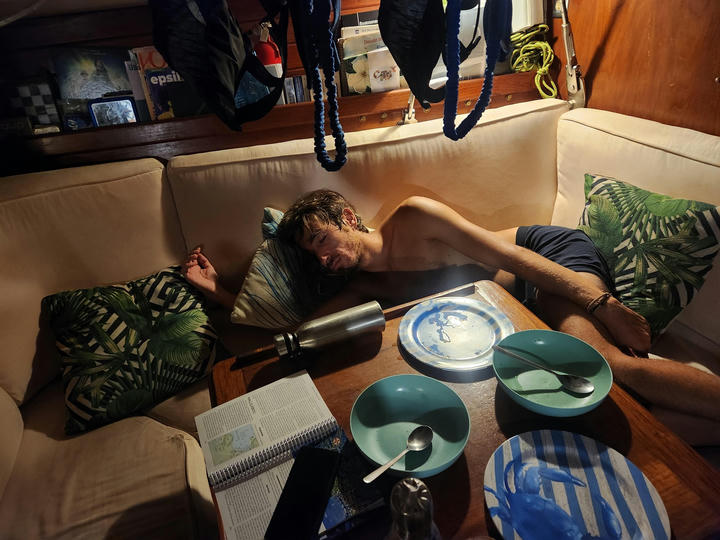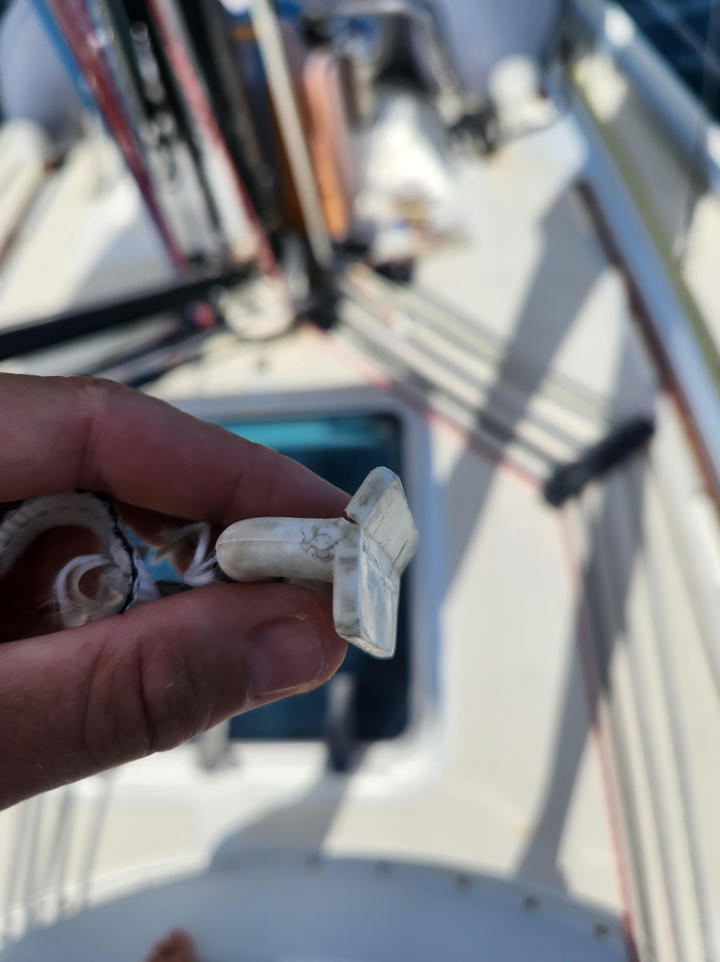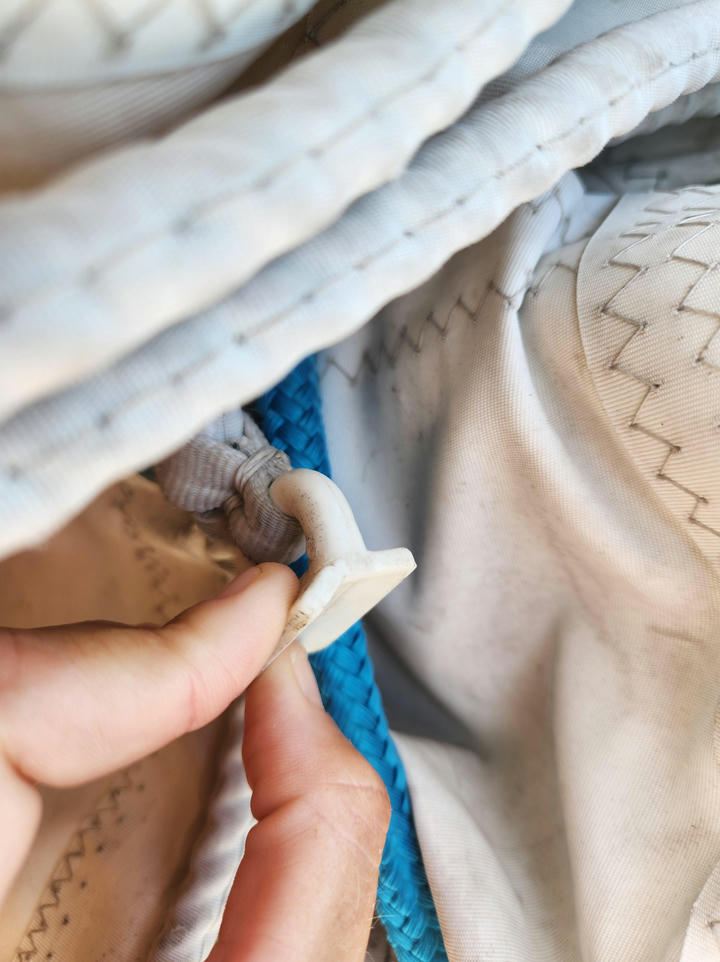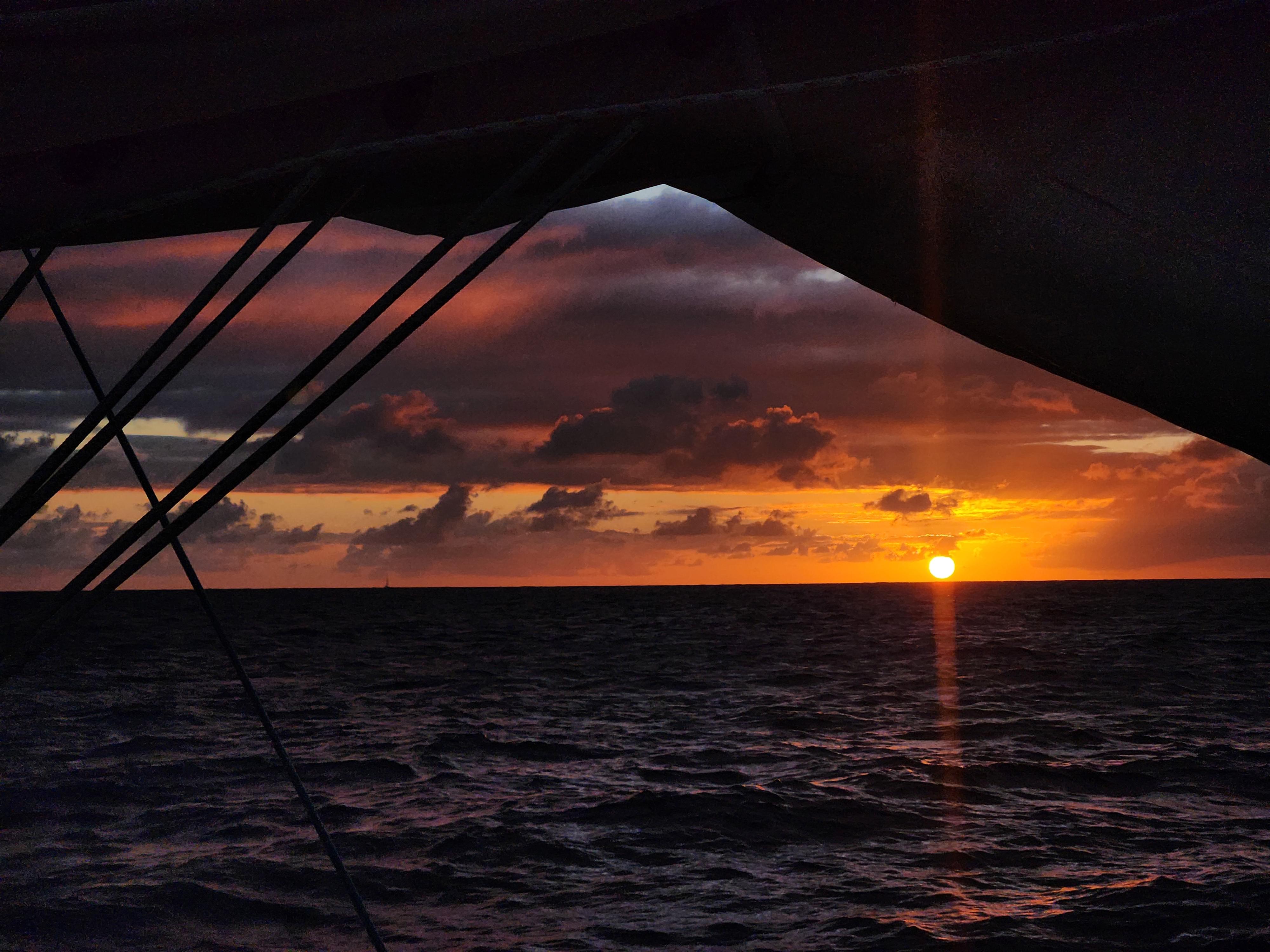We had spent a little more time than planned in Martinique and had been ready to move on for a while, but friends, journalisting, and clearance mess... in short, life had happened... and finally, we were cleared out and ready to set off for Saint-Vincent and the Grenadines on the following night. The routing software was planning for a 16-hour sail, so we opted for a morning arrival and a departure at 3 or 4 in the afternoon the day before. I found a way to sprain my finger right after checking out, just to keep us busy on departure day with a visit to the local hospital and an X-ray to check that nothing was actually broken (gotta use this nice socialized medicine system, you know 😉). After all these uninteresting adventures, we lifted anchor at 5:30 or so, ready to sail into the night.
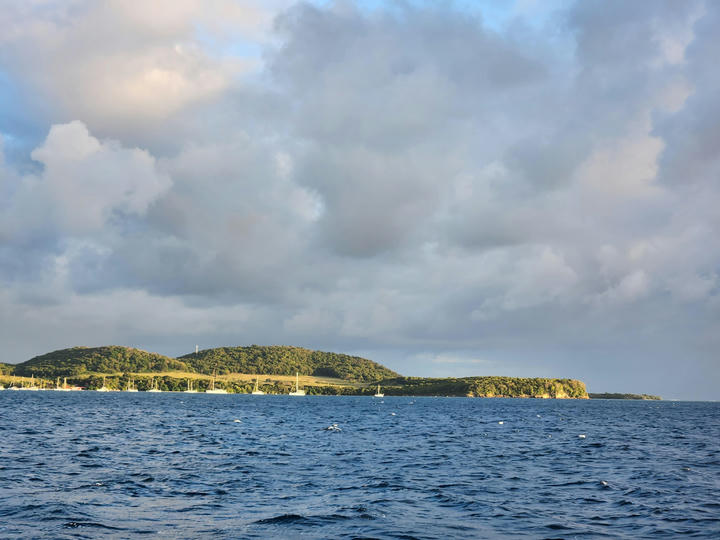
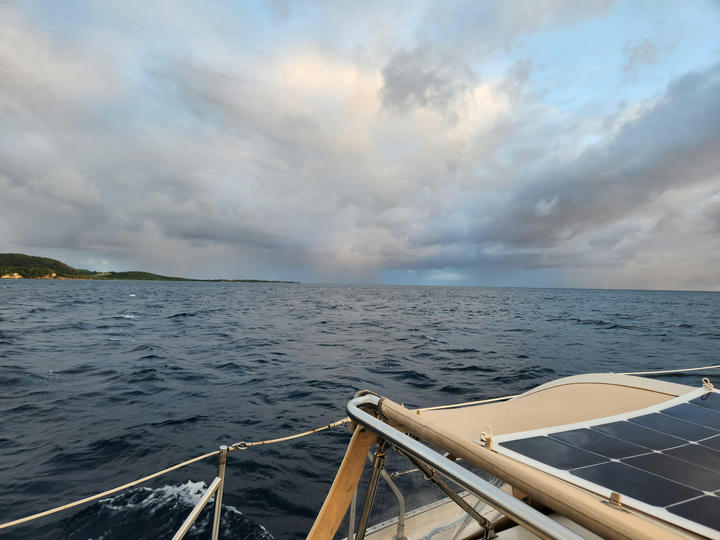
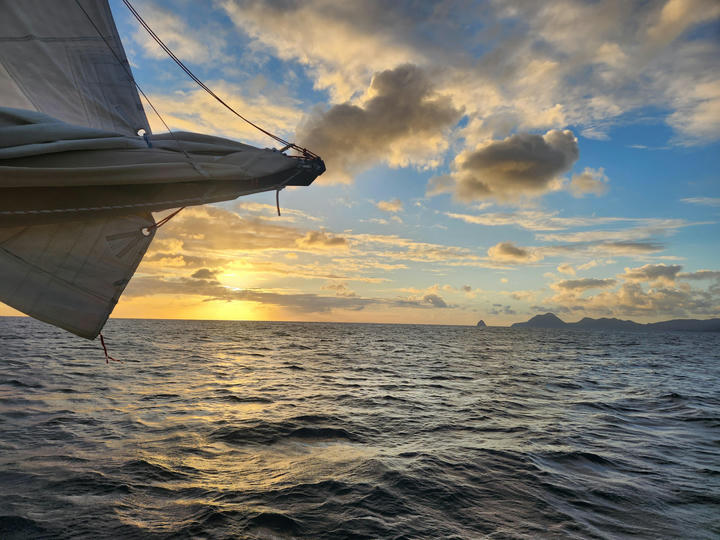
We motored out the long channel of Le Marin towards the setting sun in the West. The view was beautiful, but the wind was already tickling the surface of the water and white caps were being lifted. After the last marker and the line of fishing traps, we turned into the wind (towards Le Marin) to hoist our main sail. Going for a night passage and given the strong Caribbean breeze, we were wise enough to put the two reefs in the main.
Wise enough, heh?
Indeed, as we sailed into the evening in the Saint-Lucia channel between the two islands (Martinique and Saint-Lucia), we got hit by a first squall. We furled some jib at once and weathered the passing cloud and its wind. I realized it would have been smart to have food before we left... The Atlantic swell feeding in the channel was already taking advantage of our calm anchorage-accustomed stomachs, and we had a full night to go, during which cooking might prove difficult in the end! We had planned for reaching, a course that seemed easier than the beating up that had been our norm recently.
The weather became squally. Yalçın, at the helm, who already had his sailing jacket for a while, advised me to put my foulies on as well as the first drops arrived. A good advice because in less than a minute, the rain started pouring and the wind became colder. I took refuge under the dodger, and then, in the companionway, as the dodger isn't dodging as well when the wind blows the rain from your back... Yalçın was still steering in the rain and got soaked in no time. I had taken the skippership for this passage and realized what our second mistake was: We should have set the wind vane earlier to save the energy of the crew. Personally, I was already feeling the urge to go to bed, as I always feel at sea - somehow, the first thing I do is very often to catch up on sleep! But Yalçın was there steering as he loves to do. I took the helm from him to feel the conditions and to allow him to get out of the wind and dry out under the dodger. I soon set our third crew who doesn't fear the elements, Avocet the valiant windvane.
I was feeling some anxiety about being at sea. I felt we underestimated the conditions and left unprepared. We had been at anchor or on short sails for too long, and this Caribbean sailing was eventful, even not so hard on the wind... We had misjudged the challenge, not a good place to be at sea.
A little later, as we were leaving the lights of Martinique behind, the lights of Saint Lucia ahead disappeared as well. We got engulfed in a cloud that we had seen in the last lights. The wind rose, and we took the jib in completely. It rose again, I told Yalçın, who was now steering again to fight his seasickness, to fall off and we started running with this strong wind. To give you an idea, Yalçın read a boat speed of 10.9 knots in more than 25 knots apparent. It must have been blowing in the 35... one of the strongest winds we'd ever been in!
It eventually calmed down, and as Yalçın was gaining back degrees into the wind to point at Saint Lucia again, we took a little bit of jib out.
That's when I formulated an idea I had tried to refrain from for a bit, but now seemed to make sense: we could tuck into Rodney Bay in Saint Lucia and spend the night at anchor, sheltered from these gusty conditions and, most of all, sleep! Yalçın was immediately onboard. He hadn't been feeling so good in the stomach and would give back to the sea in a little while.
I took the shift for a bit. I was regularly checking what we call "the vitals": boat speed, wind speed, course... After some time, very progressively, the wind started to cross the twenties more and more frequently. Since we were making good speeds and what we saw was apparent wind, it meant 26-27 knots. When the apparent speed crossed 23 a few times, I decided we should take in the jib altogether again before it became too hard for us, and especially for Yalçın, who does most of the heavy lifting and who wasn't in the best shape. Good call! The wind kept increasing. With more perspective, we realized that what we felt was an acceleration effect from the Northern tip of Saint-Lucia, as you often get near capes. The lights of our new destination had appeared again, but our course was now a close reach. Not an easy thing main only, and I didn't feel bold enough to unfurl some jib for a long time (I'm not even sure we unfurled it at all actually). I took over from the hydrovane to sail a more efficient course, taking into account the built-up swell, which was kicking our bow off the wind and slowing us down. We were making slow progress... After an hour like that and little progress to target, I decided it might be better to fall off and make progress towards the island, get some protection and then beat up in calmer winds and flatter seas if needed. That was the right strategy, thankfully! The hydrovane could steer and the seas became flatter very soon. The entrance of Rodney Bay was known to us and presented no hazard, a good argument for attempting it at night in strong winds. Yet, we had a hard time making sense of the city lights we were seeing. I didn't remember that much light outside Rodney Bay to the North, nor the two tall and lit-up towers in the Bay. Yalçın seemed more confident in the shape of Pigeon Island, that made sense, but these towers!? That puzzled me until the moment we distinguished the boat attached underneath these two ginormous masts! By that time, things had significantly calmed down, but the Barffing Gods still tried to come for me. My pride pushed them away (understand I lied down): we were too close to the finish!! Inside the bay, we fired the engine, dropped the main sail, and then our anchor in a safe 30 feet of water.
We had bailed, but most importantly "we had brought the boat and the crew in one piece" as Yalçın noted! Believe me, we enjoyed that good night of deep sleep!
